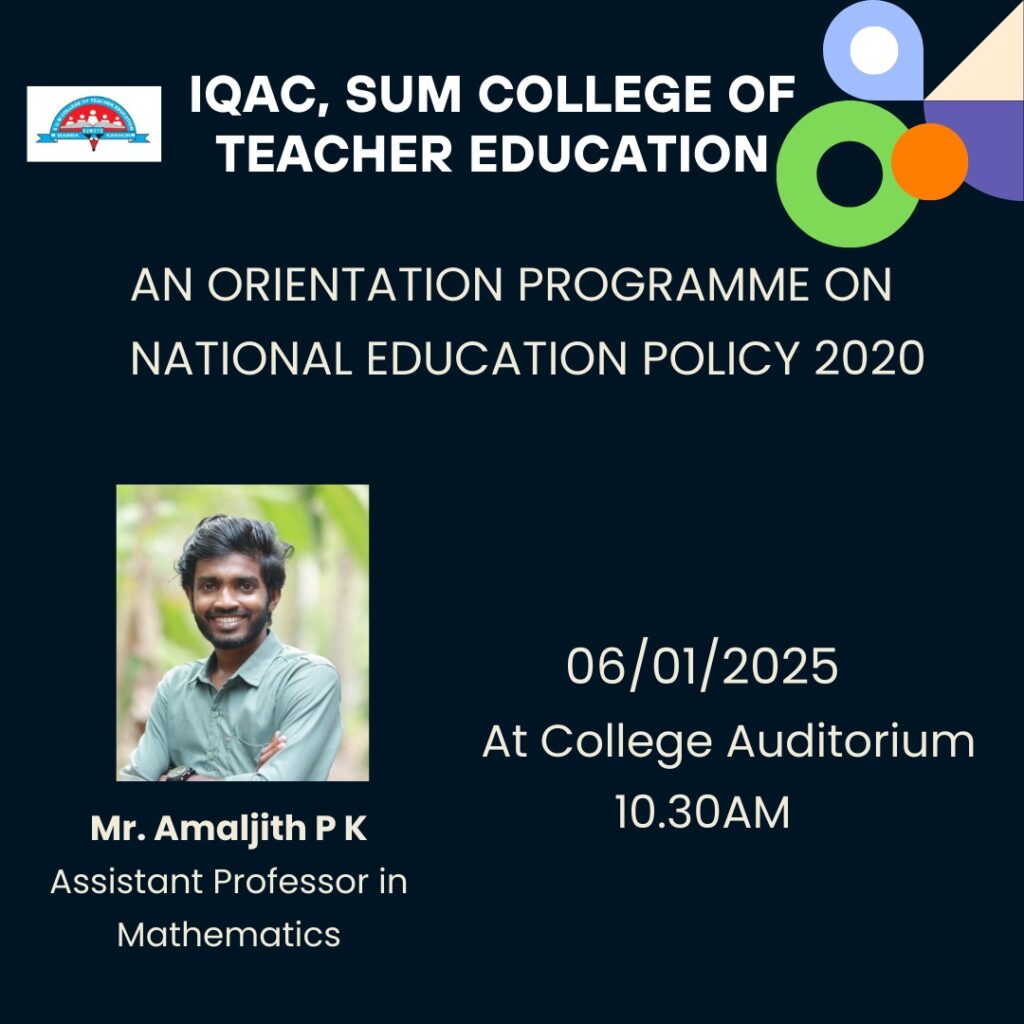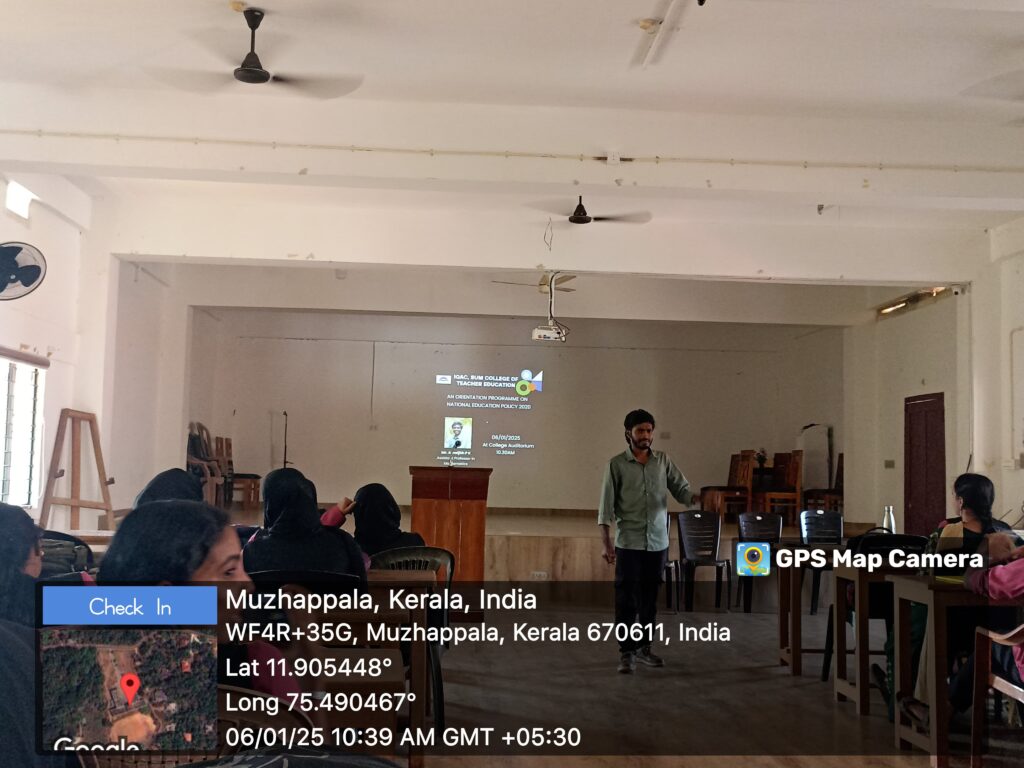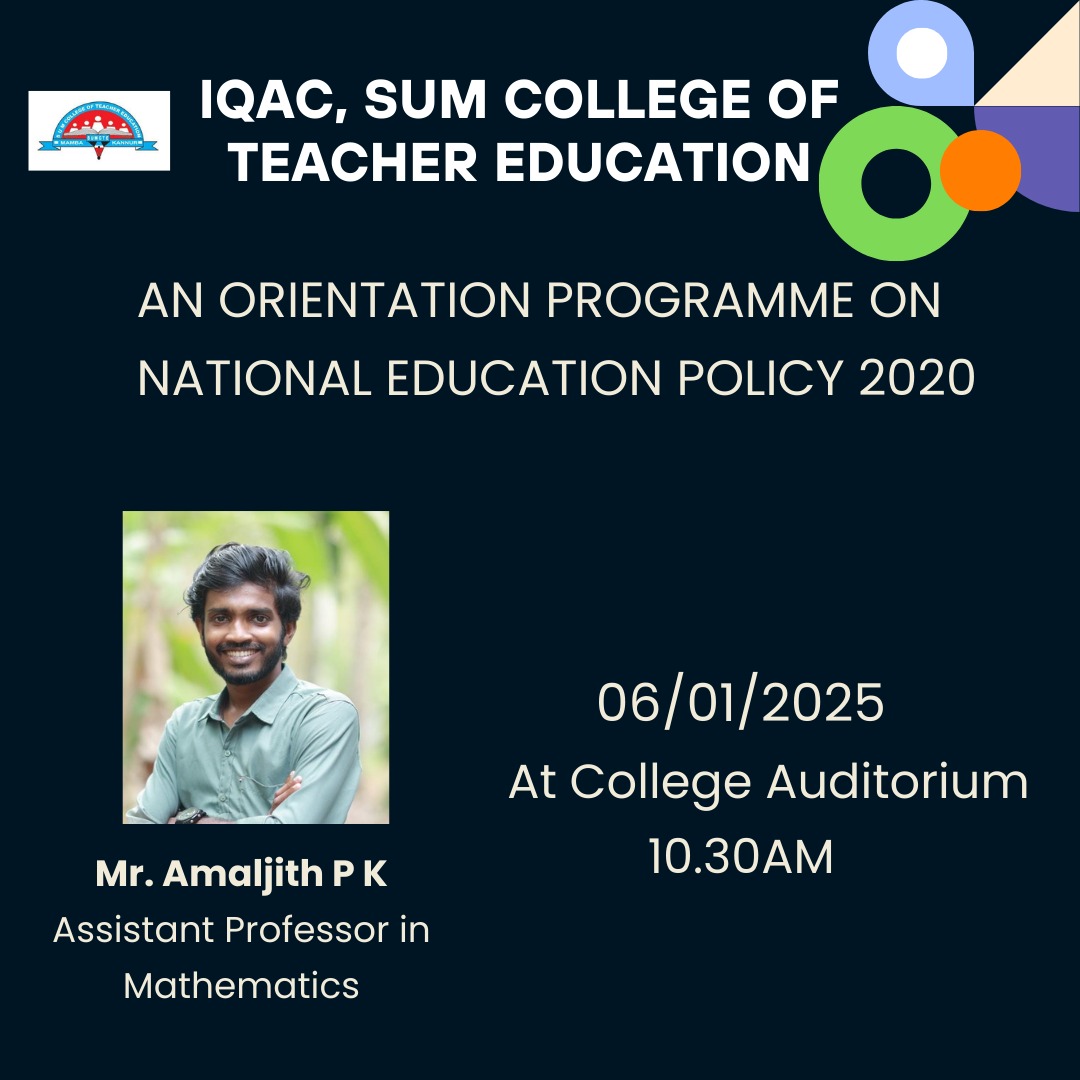
Introduction:
An orientation program focusing on the National Education Policy (NEP) 2020 was conducted on 6th January 2024 at SUM College of Teacher Education. The session was led by Mr. Amal Jith, an Assistant Professor of Mathematics, who provided an insightful overview of NEP 2020 and its implications for the educational landscape in India. The orientation program aimed at familiarizing faculty members, prospective educators, and students with the core principles and objectives of NEP 2020.
Purpose of the Program:
The primary objective of the orientation was to:
- Introduce the key aspects of the National Education Policy 2020.
- Explain the major changes and reforms in the field of education.
- Discuss how NEP 2020 can reshape higher education and teaching methodologies.
- Foster an understanding of the impact of NEP 2020 on future educators and students.
Overview of NEP 2020:
Mr. Amal Jith initiated the session by providing a detailed explanation of NEP 2020, which is a comprehensive framework aimed at transforming the Indian education system. He highlighted the following key elements:
- Holistic and Multidisciplinary Education: NEP 2020 advocates for a holistic education system that fosters critical thinking, creativity, and problem-solving skills. It encourages a shift from rote learning to a more integrated, multidisciplinary approach to learning.
- Flexibility in Curriculum: One of the core features of the policy is the flexibility it offers to students in choosing their subjects. The introduction of multiple entry and exit points within degree programs gives students the freedom to customize their learning paths.
- Focus on Early Childhood Education: The policy emphasizes the importance of early childhood education, with an aim to ensure universal access to quality education for children between the ages of 3 and 6 years.
- Technology Integration in Education: NEP 2020 promotes the use of technology to enhance the learning experience. It encourages the development of digital platforms and online education resources to make learning more accessible.
- Teacher Training and Development: The policy stresses the need for continuous professional development for teachers. It recommends the establishment of a National Professional Standards for Teachers (NPST) to ensure high standards of teaching.
- Promoting Indian Languages: The policy advocates the use of mother tongues and local languages in the early years of schooling. It also aims to develop and promote Indian languages as a medium of instruction at all levels.
Key Insights and Discussion:
Throughout the session, Mr. Amal Jith delved deeper into how NEP 2020 encourages a shift towards student-centered learning, collaborative teaching approaches, and greater autonomy for institutions. He also shared his thoughts on the importance of adapting to these changes to align with global educational standards while retaining the uniqueness of India’s cultural and educational diversity.
The program included discussions on how the implementation of NEP 2020 would impact teacher education, curriculum design, and classroom strategies. The shift to a more inclusive, flexible, and technology-enabled education system was emphasized as a significant milestone in the reform of India’s education sector.
Interactive Session:
An interactive session was held towards the end of the orientation, where participants actively engaged in a Q&A session. Several faculty members raised questions about the practical challenges of implementing the policy in their respective fields and classrooms. Mr. Amal Jith addressed these concerns by offering suggestions and emphasizing the need for adaptive teaching methods and the use of technology to support the learning process.


